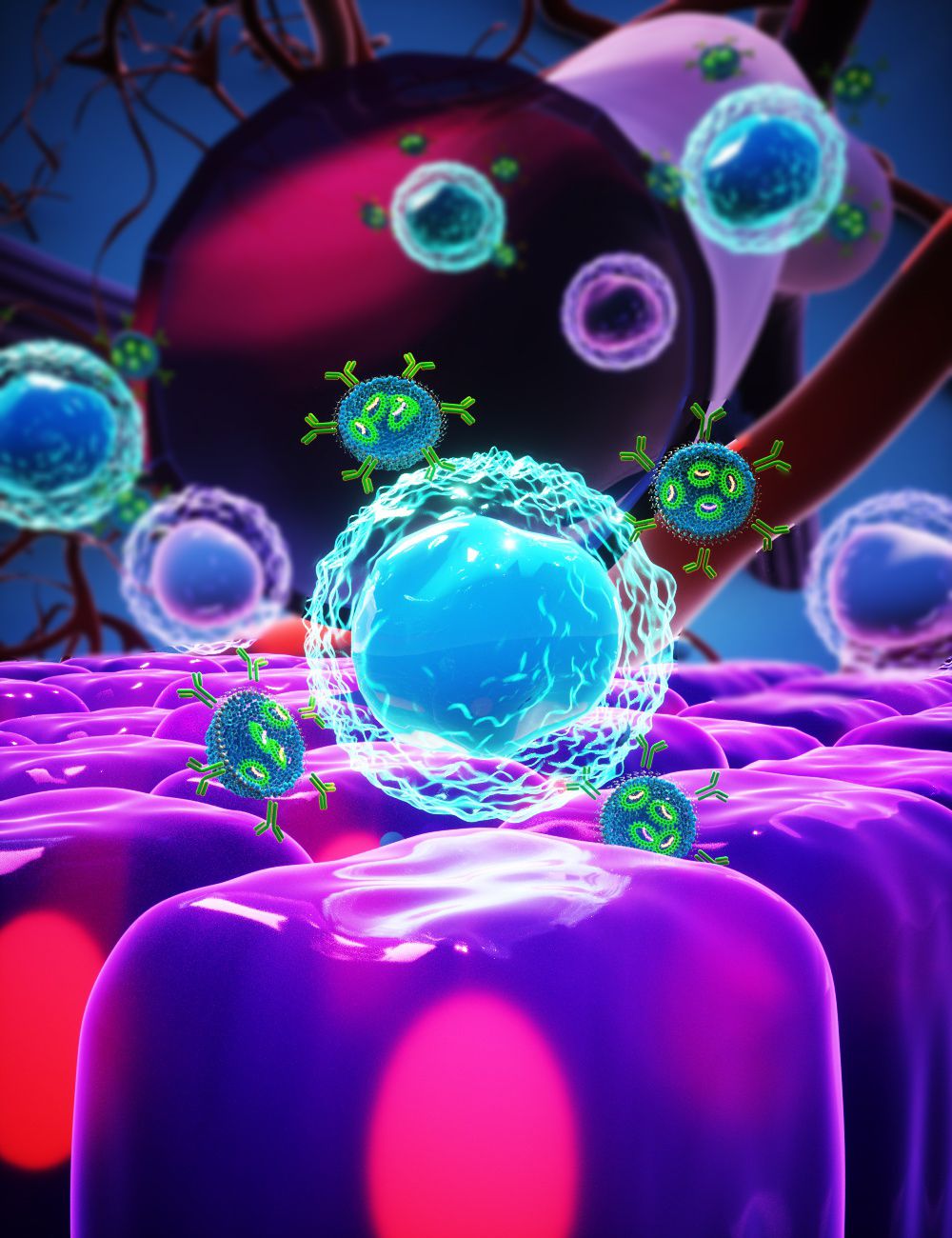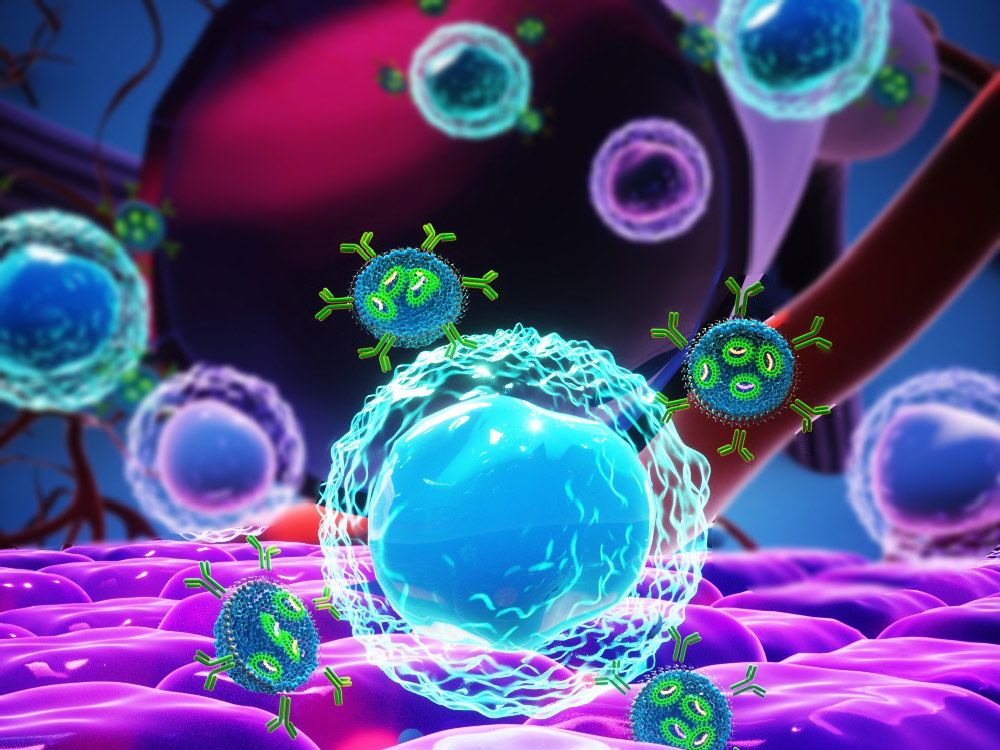
- The groundbreaking technology may revolutionize the treatment of cancer and a wide range of diseases and medical conditions.
- Researcher Prof. Peer: “Our development actually changes the world of therapeutic antibodies. Today we flood the body with antibodies that, although selective, also damage healthy cells. We have now removed the uninfected cells from the equation, and, via a simple injection, succeeded in targeting only the cells that are inflamed at that given moment.”
- The study was published in the prestigious scientific journal Nature.
Tel Aviv University’s groundbreaking technology may revolutionize the treatment of cancer and a wide range of diseases and medical conditions. In the framework of this study, the researchers were able to create a new method of transporting RNA-based drugs to a subpopulation of immune cells involved in the inflammation process, and target the disease-inflamed cell without causing damage to other cells.
The study was led by Prof. Dan Peer, a global pioneer in the development of RNA-based therapeutic delivery. He is Tel Aviv University’s Vice President for Research and Development, head of the Center for Translational Medicine and a member of both the Shmunis School of Biomedicine and Cancer Research, George S. Wise Faculty of Life Sciences, and the Center for Nanoscience and Nanotechnology. The study was published in the prestigious scientific journal Nature.
Prof. Peer: “Our development actually changes the world of therapeutic antibodies. Today we flood the body with antibodies that, although selective, damage all the cells that express a specific receptor, regardless of their current form. We have now taken out of the equation healthy cells that can help us, that is, uninflamed cells, and via a simple injection into the bloodstream can silence, express or edit a particular gene exclusively in the cells that are inflamed at that given moment.”
As part of the study, Prof. Peer and his team were able to demonstrate this groundbreaking development in animal models of inflammatory bowel diseases such as Crohn’s disease and colitis, and improve all inflammatory symptoms, without performing any manipulation on about 85% of the immune system cells. Behind the innovative development stands a simple concept, targeting to a specific receptor conformation.
“On every cell envelope in the body, that is, on the cell membrane, there are receptors that select which substances enter the cell,” explains Prof. Peer. “If we want to inject a drug, we have to adapt it to the specific receptors on the target cells, otherwise it will circulate in the bloodstream and do nothing. But some of these receptors are dynamic – they change shape on the membrane according to external or internal signals. We are the first in the world to succeed in creating a drug delivery system that knows how to bind to receptors only in a certain situation, and to skip over the other identical cells, that is, to deliver the drug exclusively to cells that are currently relevant to the disease.”
Previously, Prof. Peer and his team developed delivery systems based on fatty nanoparticles – the most advanced system of its kind; this system has already received clinical approval for the delivery of RNA-based drugs to cells. Now, they are trying to make the delivery system even more selective.
According to Prof. Peer, the new breakthrough has possible implications for a wide range of diseases and medical conditions. “Our development has implications for many types of blood cancers and various types of solid cancers, different inflammatory diseases, and viral diseases such as the coronavirus. We now know how to wrap RNA in fat-based particles so that it binds to specific receptors on target cells,” he says. “But the target cells are constantly changing. They switch from ‘binding’ to ‘non-binding’ mode in accordance with the circumstances. If we get a cut, for example, not all of our immune system cells go into a ‘binding’ state, because we do not need them all in order to treat a small incision. That is why we have developed a unified protein that knows how to bind only to the active state of the receptors of the immune system cells. We tested the protein we developed in animal models of inflammatory bowel disease, both acute and chronic.”
Prof. Peer adds, “We were able to organize the delivery system in such a way that we target to only 14.9% of the cells that were involved in the inflammatory condition of the disease, without adversely affecting the other, non-involved, cells, which are actually completely healthy cells. Through specific binding to the cell sub-population, while delivering the RNA payload we were able to improve all indices of inflammation, from the animal’s weight to pro-inflammatory cytokines. We compared our results with those of antibodies that are currently on the market for Crohn’s and colitis patients, and found that our results were the same or better, without causing most of the side effects that accompany the introduction of antibodies into the entire cell population. In other words, we were able to deliver the drug ‘door-to-door,’ directly to the diseased cells.”
The study was led by Prof. Peer, together with Dr. Niels Dammes, a postdoctoral fellow from the Netherlands, with the collaboration of Dr. Srinivas Ramishetti, Dr. Meir Goldsmith and Dr. Nuphar Veiga, from Prof. Dan Peer’s lab. Professors Jason Darling and Alan Packard of Harvard University in the United States also participated. The study was funded by the European Union, in the framework of the European Research Council (ERC).


